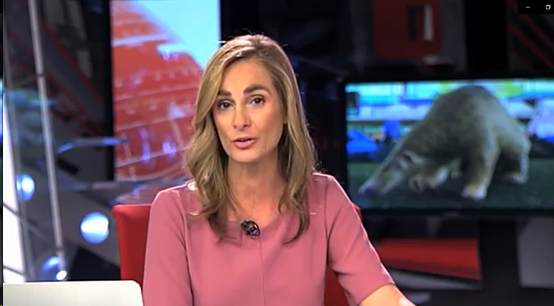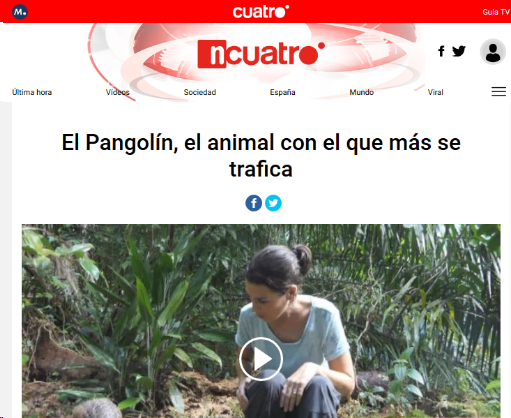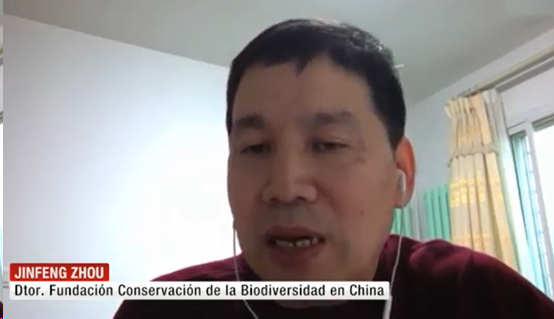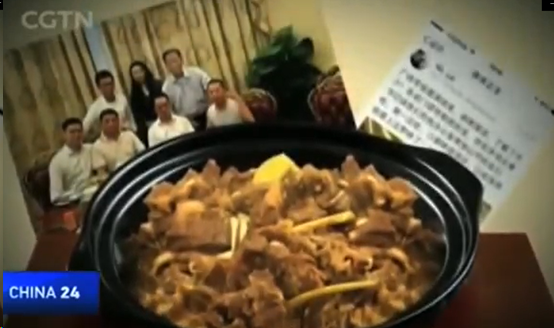Pangolins are the world’s most trafficked mammals. On the World Pangolin Day 2019, Jinfeng Zhou, Secretary General of the China Biodiversity Conservation and Green Development Foundation (CBCGDF), accepted an interview by Cuatro Channel Spain. It was broadcasted on the TV news program at 2 pm and 8 pm on Feb. 16th. According to the TV, this is the first time they talk about this endangered animal in the news in Spain, making a real impact on the audience. Here're the answers by Dr Zhou’s answers in reply to the journalist's questions.
Question 1: What are the difficulties NGOs face in China concerning the conservation of pangolins?
Answer 1: The number one difficulty does not actually lie with the pangolins themselves, but with a lack of cooperation from the side of the government. I could show you three examples for this.
(1) The first is about an unsuccessful trip to the past 70th meeting of the Standing Committee (SC) of the Convention on International Trade in Endangered Species of Wild Fauna and Flora (CITES) held in Sochi, Russia. I was invited as an observer to this event and planned a side event, ready to communicate and exchange Chinese experience in pangolin conservation while actively cooperating with others. But in the end both the side event and my observer status were cancelled on request by the relevant governmental authority.
(2) The second example is similar, about my interrupted visit to the Illegal Wildlife Trade Conference (IWT) 2018 in London. My planned participation in this event did not go through because the authority refused to provide due endorsement for the UK Embassy in China. They believed my organisation was not related to illegal wildlife trade. If the CBCGDF is an unrelated organization, who else can be?
(3) The third story is about our communication with government in Guangxi Zhuang Autonomous Region. Our application for the releasing of captured pangolins to the wild was firmly refused, as a common case. And our information disclosure requests about confiscated pangolins trafficked to China were likewise not accepted.
The #2 difficulty has to do with the tradition. It is conventionally believed that pangolin meats and scales have medical values, so people eat pangolin meals for the alleged health benefits. The need drives market demands, and there has been trafficking of pangolin scales in Traditional Chinese Medicine. However, we believe this is not right, but can do little to change people's beliefs.
The third major difficulty concerns funding. Although we have set up over 8 China Conservation Areas for Pangolins (CCAfa) across the country, till today, we have not been able to provide sufficient funding for them to help with their work. The local communities have all the willingness and readiness, yet can do little with monetary support. Our effort to carry out tests for tracking the source of pangolins and checking illegal fake medicine is also severely inhibited by funding shortage.
Question 2: What can we do to improve the situation of pangolin conservation?
Answer 2: First, we need to amend existing regulations and laws, such as upgrading pangolin's conservation status from Class 2 to Class 1 in China's National Protected Animal Species list. Another thing is to delete pangolin-related ingredients and descriptions from Chinese Traditional Medicine. Rigid law enforcement and serious implementation of any improvement is highly essential.
Second, strong law enforcements are needed. In our investigation to Guangxi, we found sometimes even local authorities are often involved in this illegal business by granting permits to companies that still participate in the illegal trade of pangolins. We have filed environmental public interest litigations.
Question 3: Is it too late to emphasize pangolin conservation now?
Answer 3: No, it is not too late. In fact, we have made several considerable achievements in this area. For instance, the authority has already agreed our application to upgrade pangolin's conservation status from Class 2 to Class 1 in China's National Protected Animal Species, although which may take some time. They have also agreed to give us samples to do the genetic test for illegal source identification. There has also been a series of other activities going on in China to save endangered pangolins.




(Photo source: Internet)
By / Lu Lei
